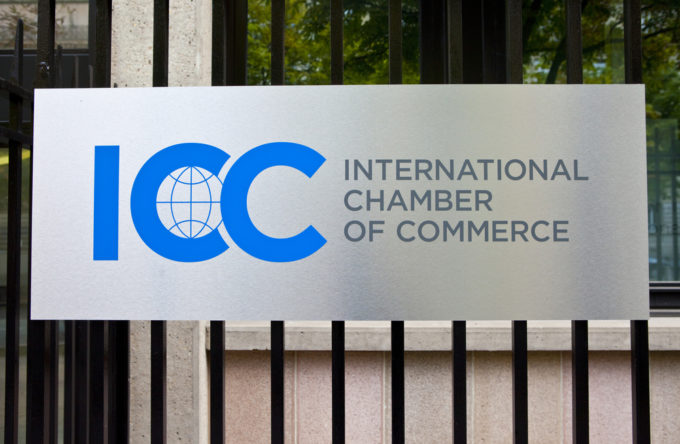
In a September blog “INCOTERMS, They are a-changing” , we discussed what potential changes could occur during the review process of INCOTERMS 2010 by the International Chamber of Commerce (“ICC”). The ICC has now released the latest revisions, which they believe will help simplify the responsibilities of the buyer and the seller in a trade finance contract. The latest version of INCOTERMS becomes effective January 1, 2020 and is to apply to contracts entered into after that date. As with previous releases, the buyer and seller still have the option to utilize an older version of the INCOTERMS but it must be clearly spelled out in the contract as to which INCOTERM is being applied; such as INCOTERMS 2020.
Summary of Changes
While there was speculation that the ICC would reduce the number of INCOTERMS, which occurred in the 2010 release, the number of INCOTERMS remains at eleven (11). Below is a summary of the changes:
- FCA (Free Carrier Alongside) – the notation in the contract or purchase order when using FCA should read as follows: FCA [named place of delivery] INCOTERMS 2020 and the place can be at the seller’s dock or an agreed upon point of unloading. This rule may be used for any mode of transportation. The seller remains responsible for all charges related to packaging, loading and delivery of the goods, and, if applicable, the clearance of the goods for export. The buyer is responsible for all other charges related to obtain the goods, including import duties, taxes, and security clearance (if applicable). One of the more significant changes with this rule is the ability of the seller to require the buyer to provide an on-board bill of lading if the term is being used for ocean-going vessels or even aircraft. The requirement for this document, particularly with letters of credit or other collection documents, allows the seller to require the buyer to provided what is now called ‘an on-board bill of lading.’ Without this bit of protection, a seller would lose control of containerized shipments and carry the risk of damage to the goods until such time as they are loaded.
- DPU (Delivered at Place Unloaded) – the new rule renames DAT (Delivered at Terminal) and appears to be a decision to resolve the confusion by INCOTERM users between DAT and DAP (Delivered at Place). The change allows for goods to be delivered at either the named terminal or at another named location and, legally, delivery takes place at the time the goods have been unloaded and placed at the buyer’s disposal.
- CIP (Carriage and Paid To) – is a multimodal term that is often confused with CIF (Cost Insurance and Freight), which is an ocean-going term Under INCOTERMS 2010, the seller need only obtain the minimum amount of insurance coverage as dictated by the Institute Cargo Clause C for both CIP and CIF terms. Now, under CIP, the seller is responsible for obtaining increased insurance coverage of at least 110% of the goods described in Clause A of the Institute Cargo Clauses. Note – the insurance requirement has not changed for the CIF rule.
In addition, there are other changes including allowing the buyer and seller to determine their own modes of transportation, at their own expense, in a transaction. Such an ability behooves both the seller and the buyer to understand how the changes will impact today’s transaction. Also, INCOTERMS 2020 spells out the expanded security-related requirements and how the costs of the same are shared between the seller and the buyer.
Additional Reminders
Here are some other reminders in the INCOTERMS world: While many a Trade Compliance professional wished for the elimination of EXW (Ex-Works), it is still a viable INCOTERM. As a reminder to all, this rule may be fine to use for domestic shipments, but when used for export shipments, the seller loses total visibility into the transaction, especially when used for goods that are export controlled and may be licensable either under the Directorate of Defense Trade Control (DDTC) or Bureau of Industry and Security (BIS). Additionally, when using EX-Works, the responsibility for an Electronic Export Information (EEI) filing may not reside with the seller but the buyer’s designated agent, thereby eliminating the seller’s ability to understand and obtain the information provided to U. S. Census. Our suggestion is to avoid this INCOTERM for international transactions, if at all possible. If it is the only choice to transact business, then make sure you have a Power of Attorney that outlines what will be provided to you, as the seller, before the goods are loaded.
The same holds true for FOB (Free On Board). While this term has been around for several centuries, it is important that your sales and purchasing teams understand this rule is specific to domestic and international waterways, (i.e., ocean or intercoastal waterways) not air or railway transport.
There are other cosmetic changes that have occurred within the rules and it is important that as a Trade Compliance professional you have knowledge of these changes and can provide the appropriate level of support to your Supply Chain regarding them. If you are interested in knowing more about INCOTERMS 2020 and which is most appropriate for your business, please contact Export Solutions for a free consultation.
Beverly Demma is a Sr. Consultant for Export Solutions -- a full-service consulting firm specializing in U.S. import and export regulations.
